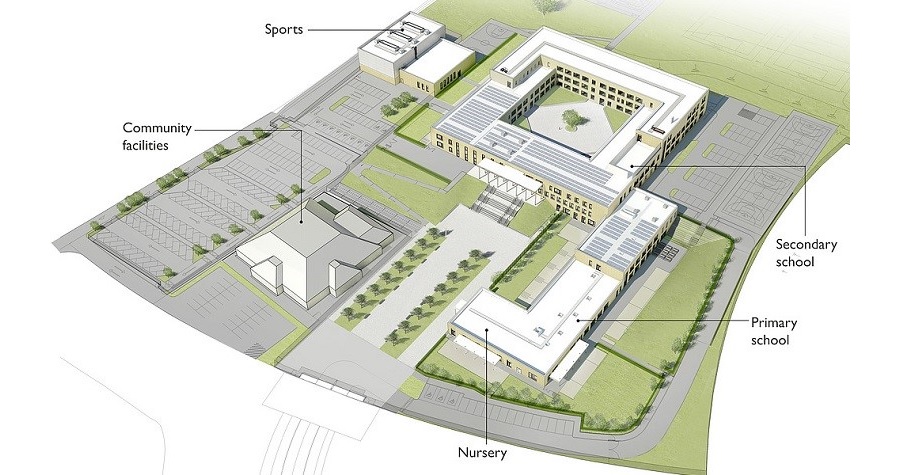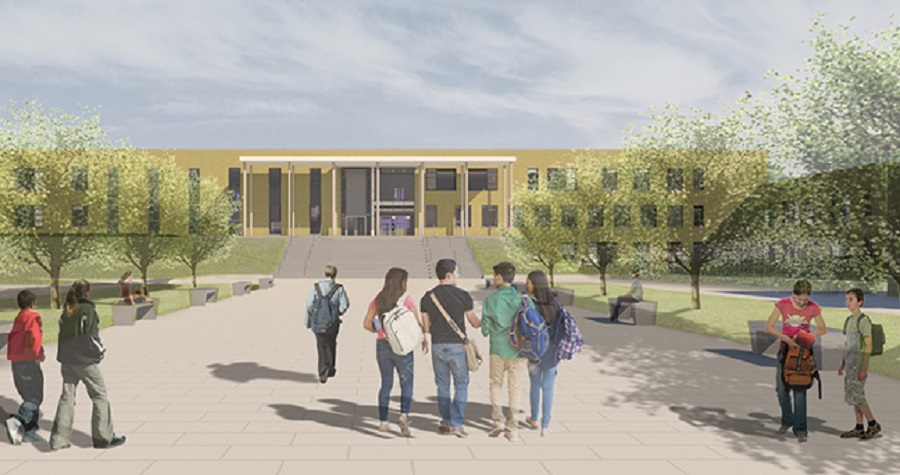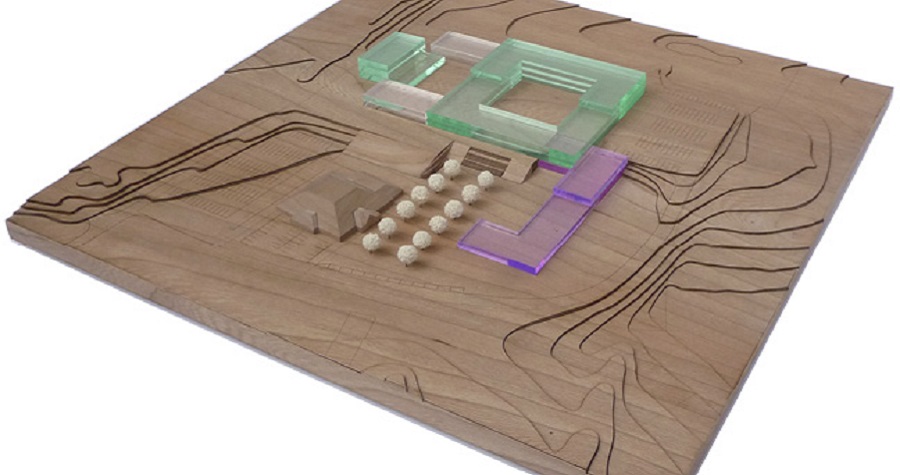The Binfield Learning Village concept is the creation of teaching and learning accommodation for secondary, primary, nursery and special educational needs (SEN) children in a single integrated facility, designed to meet the needs of the different age groups. The opportunity to deliver three schools together in an integrated design within a broader development affords several opportunities to innovate on infrastructure, shared services, energy and utilities costs, as well as targeting funds to what matters most in terms of advancement of the learning of young people. The proposed site is currently a golf course with a large club house complex. In addition to the Learning Village, it is anticipated there will be up to 400 new houses as well as public open space. It is also intended there will be a community hub on site and sporting facilities.
The DQI Briefing stage workshop provided a useful forum for lively and stimulating discussions between all stakeholders, who debated and agreed on their aspirations for the project, and raised issues and concerns. Key areas related to the site, access issues, community use of facilities, pupils with SEN and landscape need to be clarified and developed by the Design and Build Team. This was noted in a Briefing record and had impact on the further development of the Design brief.
At the Concept design stage workshop, stakeholders received a presentation of design scheme which highlighted how unresolved issues from Briefing stage session have been addressed, as well as description of the project. Discussions during the session demonstrated a very high degree of satisfaction with most aspects of the scheme. The Client team was very positive about the way the scheme has developed, the speed at which the design progressed, and how the proposals met their aims and vision for the Learning Village. Several issues raised in the first workshop have been addressed and the Client team are positive at how these have been resolved. Towards the end of this session, stakeholders provided feedback on the scheme and raised further areas of attention.
The aim of the Mid design stage workshop was to enable participants to compare their respective opinions of the design proposals, and to help identify strengths and weaknesses of the scheme relative to the targets set in the Briefing session. Discussions during the session indicated a high degree of satisfaction with all aspects of the scheme. Some issues still remain to be addressed and these will be considered by the Clients and Design team and fed into the project design review process.
Images: http://www.nicholashare.co.uk/



